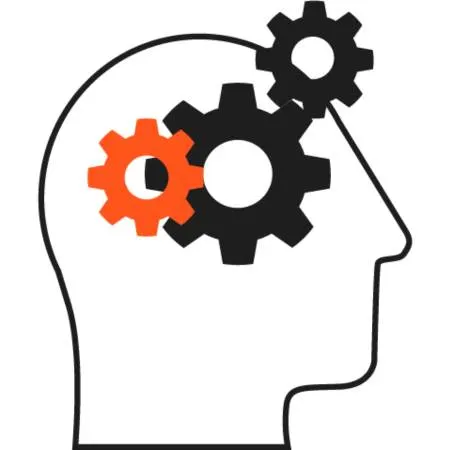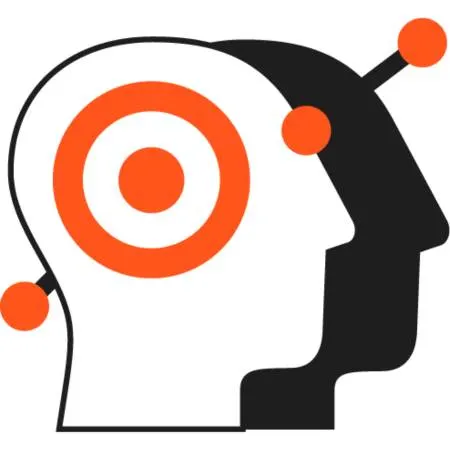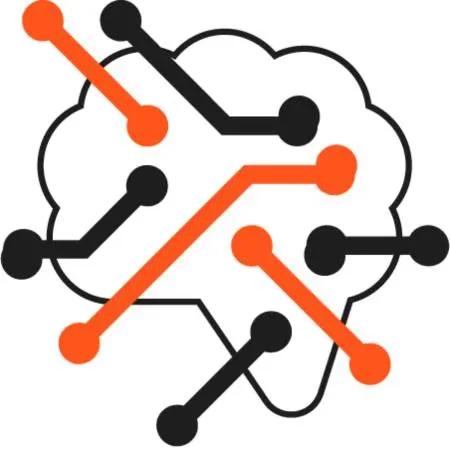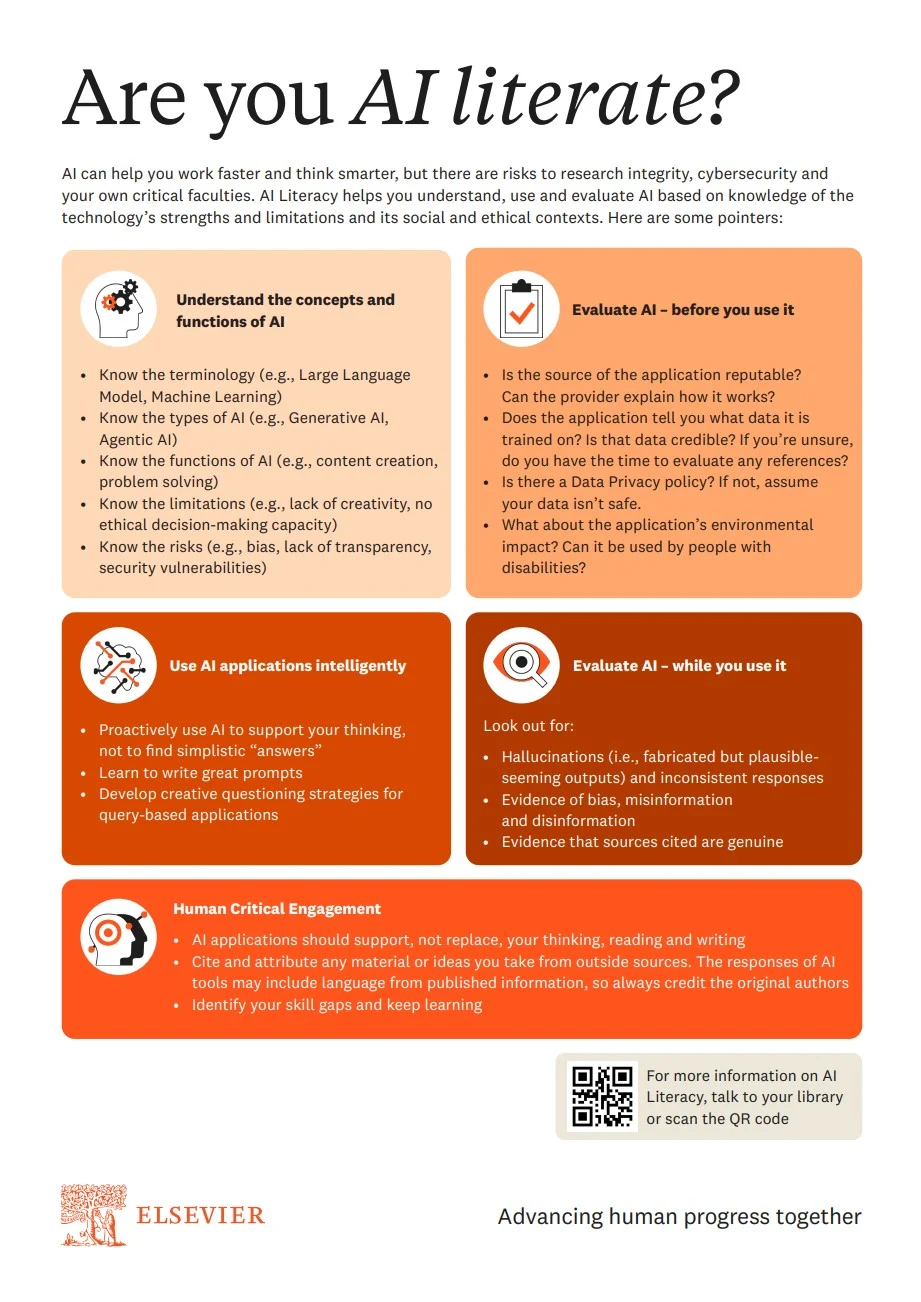Are you interested in this topic? Sign up for our AI for Higher Education newsletter

申し訳ございませんが、お客様のブラウザには完全に対応しておりませんオプションがありましたら、新しいバージョンにアップグレードするか、 Mozilla Firefox、 Microsoft Edge、Google Chrome、またはSafari 14以降をお使いください。これらが利用できない場合、またサポートが必要な場合は、フィードバックをお送りください。
この新ホームページへのフィードバックを歓迎します。ご意見をお寄せください
AI can help you work faster and think smarter, but there are risks to research integrity, cybersecurity and your own critical faculties.

AI Literacy helps you understand, use and evaluate AI based on knowledge of the technology’s strengths and limitations and its social and ethical contexts. Here are some pointers:
Know the terminology (e.g., Large Language Model, Machine Learning)
Know the types of AI (e.g., Generative AI, Agentic AI)
Know the functions of AI (e.g., content creation, problem solving)
Know the limitations (e.g., lack of creativity, no ethical decision-making capacity)
Know the risks (e.g., bias, lack of transparency, security vulnerabilities)

Is the source of the application reputable? Can the provider explain how it works?
Does the application tell you what data it is trained on? Is that data credible? If you’re unsure, do you have the time to evaluate any references?
Is there a Data Privacy policy? If not, assume your data isn’t safe.
What about the application’s environmental impact? Can it be used by people with disabilities?

Look out for:
Hallucinations (i.e., fabricated but plausible-seeming outputs) and inconsistent responses
Evidence of bias, misinformation and disinformation
Evidence that sources cited are genuine

AI applications should support, not replace, your thinking, reading and writing
Cite and attribute any material or ideas you take from outside sources. The responses of AI tools may include language from published information, so always credit the original authors
Identify your skill gaps and keep learning

Proactively use AI to support your thinking, not to find simplistic “answers”
Learn to write great prompts
Develop creative questioning strategies for query-based applications


Download the Information Literacy checklist as a PDF
Download